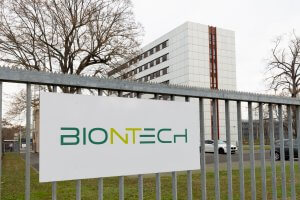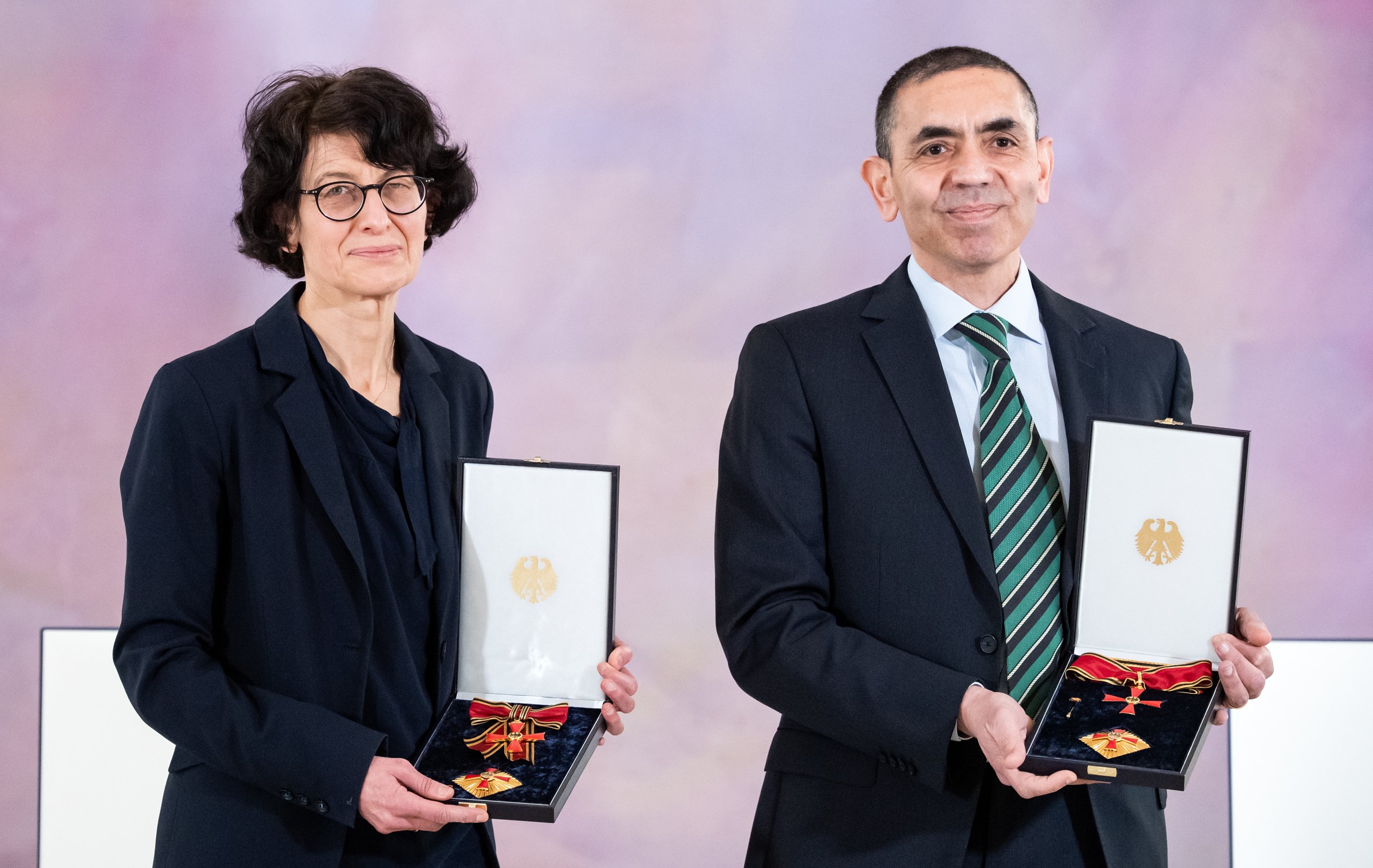By Chris Woodyard
They are far from household names, but their company's work is saving millions of lives.
Read MoreThe honors have already begun. In March, German Chancellor Angela Merkel watched as Tureci and Sahin were presented with the Knight Commander's Cross of the Order of Merit.
Now Tureci, the company's chief medical officer, and Sahin, its CEO, are being talked about as candidates for a Nobel. Politico mentions the possibility of prizes in the categories of economics, medicine and/or the one that attracts the most attention, peace.
Besides favorable press, their candidacies are being pushed on Twitter as well.
In addition, a change.org petition has been started.
The Backstory
The couple, both physicians and scientists, draw comparisons to Marie Curie and her husband Pierre, who together won a Nobel in 1903. (Though she is famous to this day and he is, to most, a footnote.)
Like the Curies, when it came to the science behind radioactivity, Tureci and Sahin have focused on their efforts in a single area. In their case, it's messenger ribonucleic acid, or mRNA, a molecule complementary to strands of DNA that lead to production of proteins that help cells fend off invaders.

To quell the coronavirus, mRNA is key to the BioNTech/Pfizer as well as the Moderna vaccines. As the Centers for Disease Control and Prevention explains how mRNA molecules work, “they teach our cells how to make a proteinor even just a piece of a proteinthat triggers an immune response inside our bodies. That immune response, which produces antibodies, is what protects us from getting infected if the real virus enters our bodies."
Both the BioNTech/Pfizer and Moderna vaccines are considered at least 94% effective in preventing hospitalizations due to COVID-19, the CDC says.
Though its rapid vaccine development grabbed headlines, BioNTech believes drugs and treatments based on mRNA will go much further. It hopes to use profits from the COVID-19 vaccine to expand research into battling cancer.
"With proceeds from the COVID-19 vaccine, BioNTech will be in a position to accelerate its research pipeline in cancer therapies, infectious diseases, regenerative therapies, inflammatory reactions, as well as autoimmune diseases," said Jens Holstein in a statement as he was named the company's new chief financial officer this month.
BioNTech hopes to start phase 2 trials on two mRNA-based cancer vaccine candidates, both targeting melanoma and one also aimed at colorectal cancer, it told investors in a presentation this month. It also reports progress on antibodies aimed at solid tumors. BioNTech is currently teamed up with MD Anderson Cancer Center in Houston, Texas for a clinical trial to test if mRNA vaccines can rid the body of cancer cells circulating in the body of stage two and stage three colon cancer patients who have had tumors surgically removed.

Staying Humble
Yet for all of its products, BioNTech's profile has stayed largely out of the limelight in the U.S, much like its two founders.
Sahin's family emigrated from Turkey when he was age 4; Tureci was born in Germany, the daughter of a Turkish physician, the New York Times reported in a profile of the pair. Before starting BioNTech in 2008, they launched another company, Ganymed Pharmaceuticals, in 2001 that also focused on cancer therapies. They sold it for $1.4 billion in 2016.
Though they are among the richest families in Germany, they have remained humble enough that they live in what is described as a "model apartment" near their office and were riding bicycles to work, the Times said.
Yet they remain dedicated to what really matters: science and research that could save millions of more lives.
Learn more about SurvivorNet's rigorous medical review process.


